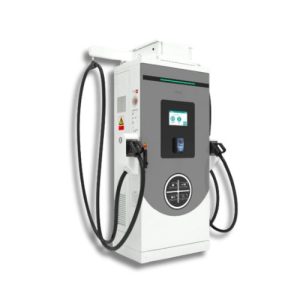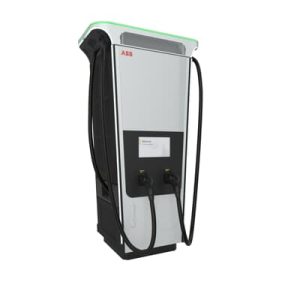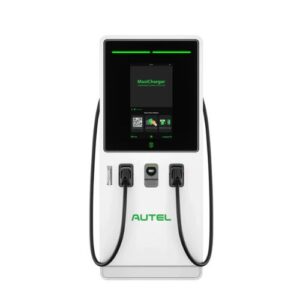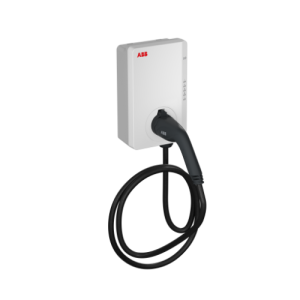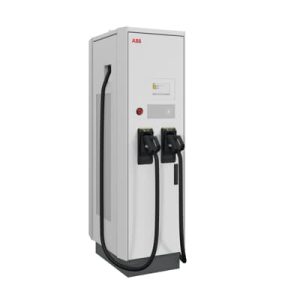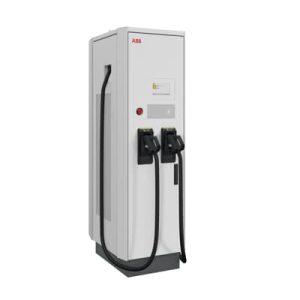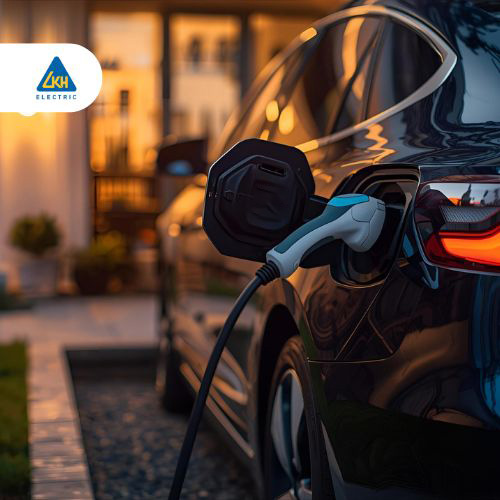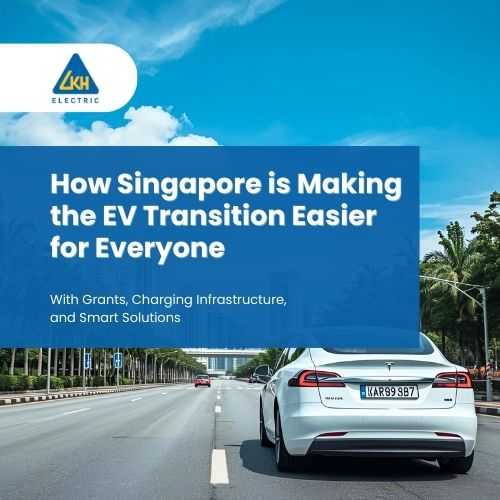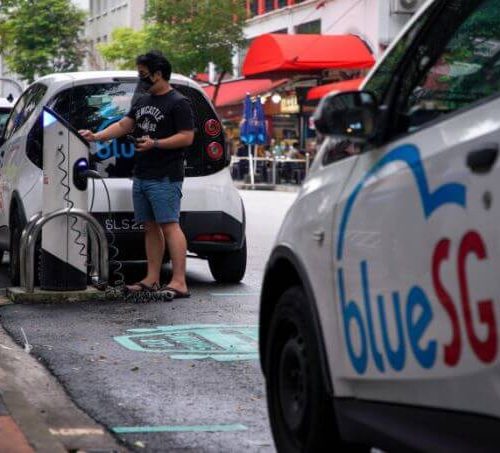Safe, Efficient, and Future-Ready EV Charging Solutions
for Commercial, Industrial, and Residential in Singapore
EV Charging Solutions in Singapore
As Singapore accelerates its journey toward the Singapore Green Plan 2030 (SG Green Plan) , EV charging is becoming essential across commercial buildings, industrial facilities, and residential developments. Organisations and property owners are increasingly adopting EV charging infrastructure to enhance user convenience, electrify fleets, and support long-term sustainability goals — all while preparing for a future where electric mobility becomes the norm.
At Lim Kim Hai Electric, we provide a complete EV charging solution built to meet the needs of commercial, industrial, and residential environments, ensuring safe, compliant, and efficient charging operations. We offer :
- Hardware: AC and DC chargers for different charging needs
- Software: Charging management platforms for monitoring, payments, and reporting
- Services: Installation, maintenance, and compliance support

Scope of Work
Types of Charging Solutions
We offer a comprehensive range of EV charging solutions, including cost-effective AC chargers and high-performance DC fast chargers. Businesses can select the ideal charging setup based on their operational needs, usage patterns, and budget requirements.
Brand to choose: ABB | Autel | Schneider Electric | Winline Technology
-
Winline DC Fast Charging Charger, Electree Maple 80kW, YLUXD80KE
-
ABB Terra DC 360 Charger, 360kW, TDC1L360 CE CC 5N5-0-2-0
-
Autel EV Charger, MaxiCharger DC Fast 240kW, EF240A3001
-
ABB Terra AC Wallbox 7.4kW without 4G, 5m cable, 32A, TAC-W7-G5-R-0
-
ABB Terra CE 184 CC 6N2-7M-H-0 , Terra 180 kW Charger
-
Autel EV Charger, MaxiCharger DC Fast 60kW, EF60A3001
-
ABB Terra CE 124 CC 4N4-7M-H-0, Terra 120 kW Charger
-
Winline DC Fast Charging Charger, Electree Cypress 120kW, YLUX120KE
Industries We Support
Our EV charging solutions cater to a wide range of sectors:
Landed Home | HDB
Simple, safe, and convenient home charging for daily use
Office Building
Smart chargers for employee, fleet and sustainability goals.
Public Car Park
Durable, high-use chargers for public EV users.
Retail Mall
Customer-friendly charging
Warehouse | Factories
Robust High Power charging for industrial fleets and operations.
Electrical Vehicle Chargers (EVC) Installations in Singapore
Our projects showcase hardware, installation, and management capabilities that deliver reliable and safe EV charging infrastructure for commercial and industrial and residential clients.
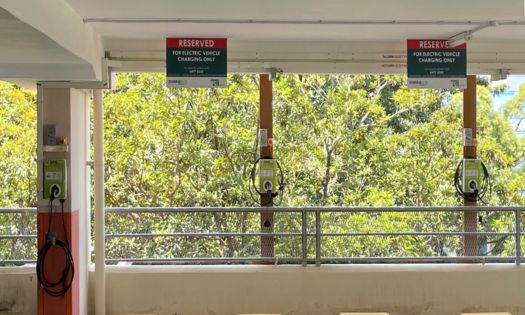
EVCS Supply and Installation
Project Scope:
- Installation of 3 AC 7KW chargers for LTA tender
Key Achievements:
- On-time and on-budget EPC support and completion of the installation project phases.
- Successfully integrated charger with CPO backend for user convenience.
Outcomes:
- Promoted sustainability and green initiatives at HDB MSCP users.
- Supported authorities application and installation compliance
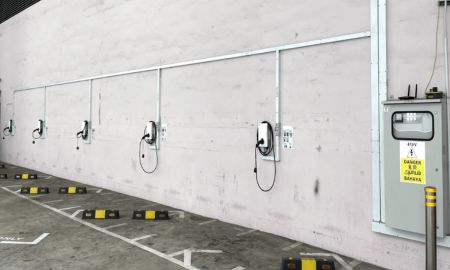
EVCS Supply and Installation
Project Scope:
- Installation of 10 AC 7.4kW chargers
- Integration of 1 DC Fast Chargers
Outcomes:
- Convenient and fast charging services to support 10 in-house electric vans, employees and visitors.
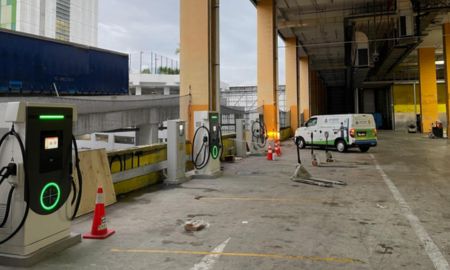
EVCS Supply and Installation
Project Scope:
– Installation of six(6) 60 kW DC chargers in the building’s car park.
Outcomes:
– Successfully supports the daily operations of the delivery team.
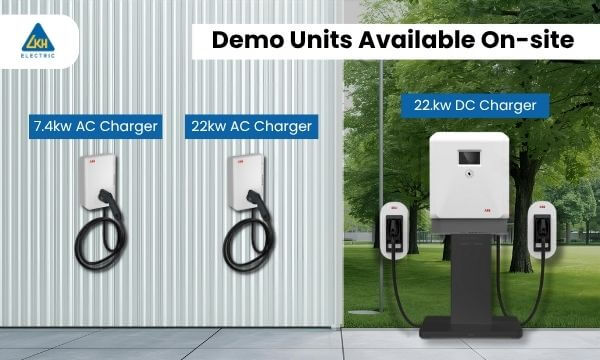
EVC Demo Station
Come visit our AC & DC Wallbox Chargers at the Lim Kim Hai Electric building at Kallang 339 177. Schedule an appointment with us for a demo session today!
EV Frequently Asked Questions (FAQ)
What is an EV charging solution?
An EV charging solution is a comprehensive system that allows electric vehicles to recharge safely and efficiently. It includes hardware (AC or DC chargers), software, installation, and maintenance services.
What incentives are available for installing an EV charger in Singapore?
Singapore offers the Electric Vehicle Common Charger Grant (ECCG) for private residences, which co-funds up to 50% of installation costs for shared EV chargers at condominiums and private apartments until December 31, 2026, or until 3,500 chargers are supported.
For businesses, the Electric Heavy Vehicle Charger Grant (EHVCG) provides up to 50% co-funding (capped at $30,000 per charger) for chargers installed for electric heavy vehicles, available from January 1, 2026, to December 31, 2028.
Source: LTA
What is the best home EV charger?
We recommend ABB Terra AC Wallbox, Autel MaxiCharger AC Wallbox and Schneider Charger Series Home Charger as the top choice for home EV charging.
- The ABB Terra AC Wallbox provides a sleek design, strong reliability, and advanced smart functions via the ChargerSync™ app, making it a preferred choice for homeowners.
- The Autel MaxiCharger AC Wallbox offers good charging performance, smart app features, and compatibility with 7.4 kW and 22 kW setups common in Singapore residences.
- The Schneider Electric EVlink Home is known for its durable build and user-friendly interface, delivering safe and dependable home charging.
These three brands represent the most reliable and recommended EV chargers for home use in Singapore.
How can businesses benefit from an EV charging solution?
Businesses can benefit from an EV charging solution in multiple ways:
- Enhance convenience for employees and tenants by providing on-site charging.
- Attract eco-conscious customers or tenants, giving your property a competitive edge.
- Demonstrate sustainability leadership, aligning with green initiatives and corporate responsibility goals.
- Generate additional revenue by offering paid charging services.
- Future-proof your property as electric vehicles become more common, ensuring your facility remains relevant and modern.
Can I integrate my EV charger with existing infrastructure?
Yes. Modern EV charger like ABB, Autel, Schneider Ev charger can be integrated with your building’s electrical system, energy management software, and billing platforms, making it easy to monitor usage and optimize energy consumption.
What kind of electrical connection is required to supply a charging station?
The charging power depends on the power rating of the charger. For AC charging stations, a 7 kW charger typically requires a single-phase supply with 32 A, while a 22 kW charger requires a three-phase supply with 32 A.
How many EV charging points are sufficient on my facilities?
According to the international benchmarks, one AC EV charger could be sufficient to charge up to 3 electrical vehicles (EVs), depending on the maximum power rating of the charger. You may estimate the total number of EVs in your building or facilities within your employees, tenants and visitors group. We would recommend you to start with 2-3 units to monitor the usage before proceeding with a larger scale.
What types of connectors are available for EV chargers in Singapore?
For AC chargers, we offer IEC Type 2 connectors.
For DC fast chargers, we support CCS2 and CHAdeMO connectors, ensuring compatibility with most electric vehicles in Singapore.
What is the difference between AC charging and DC charging in electric mobility?
An AC charger supplies AC (Alternating Current) to an onboard charging device that converts it to Direct Current (DC) which can then be used to charge the EV battery.
A DC fast charging station supplies power directly to the battery management system inside the vehicle with no onboard charging infrastructure needed inside the vehicle. Faster charging is accomplished with DC charging.
ABB and Schneider Electric offer a wide range of AC and DC chargers for use in Singapore.
What is the potential cost of installing an EV charger in Singapore?
The potential cost involved includes the cost of purchasing EV charger(s), installation cost, LEW fees, EV charger maintenance, and/or EV chargers payment and management software subscription if you are providing the EV chargers with a payment collection feature.
Lim Kim Hai Electric is providing a complimentary on-site consultation. We are also offering EV installation, maintenance and payment solutions as a one-stop solution. We recommend engaging the EV specialist to advise the best solution that would fit your application needs.
What are the considerations when setting up commercial EV charging stations and residential EV charging stations?
Commercial buildings usually need to serve logistic fleets or commercial users who require shorter charging durations. Thus, DC charging stations, which could accommodate fast charging within 1-2 hours are recommended to serve fast turnaround usage. However, in some commercial buildings that serve office workers or tenants who can park their vehicles for longer periods, AC charging stations would be the more budgetary option to go for.
AC charging stations are the recommended option for residential EV charging. Both 7.4kw and 22kw home chargers are sufficient enough to charge your car and meet your daily usage needs.
Where can businesses get an EV charging station solution in Singapore?
Lim Kim Hai Electric offers a complete range of EV charging solutions in Singapore, including AC and DC chargers, professional installation, maintenance, and operator services in partnership with Ev Mobility(EVM).
Our solutions are tailored for commercial, industrial, and residential properties, helping businesses provide convenient charging, enhance sustainability, and future-proof their facilities.
How do I choose the right EV charging solution for my property?
Consider factors such as:
- Number of vehicles expected to use the chargers
- Charging speed requirements (AC vs. DC)
- Available electrical capacity
- Budget and operational needs
*You may engage our EV Charging Experts today for tailored advice and a no-obligation site survey to determine the best solution for your business.

